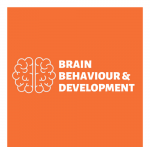The “Living Lab at Home” (LLAH) offers a novel approach to real-time home-based data collection that will expand access to research participation for a wide range of children and youth with developmental and behavioural disabilities, as well as typically developing children with chronic illnesses.
For decades, we have relied on questionnaires and lab-based experiments to answer these questions and develop interventions. With advances in digital technology, we now have the ability to address the limitations inherent to static ‘point in time’ methods, and answer questions about mood, daily function, stress regulation and mental health in the ‘real world’. However, these have generally not been co-designed with the users, nor have they been developed for use with families that have diverse medical, mental health and developmental needs.
The LLAH will address this need by establishing an intensive data collection system using smartphones, wearables and salivary stress-related biomarkers to investigate real world experiences of children and youth across the developmental spectrum. An iterative process of patient engagement is being used to establish the methods, study its implementation, and receive feedback to refine methods. This will ensure that the patient and family voice is featured prominently in the design of these methods. The LLAH brings digital technology to real-word multimodal data collection and analysis. This provides a unique opportunity to co-create, with children and their families, an ethical data collection system where they will play a central role to the identification and prioritization of both research questions and methods.
The aims/values that are driving this project:
- We want to do better research by collecting data that actually represents what happens in “real life.” We will do this by collecting data over time in the settings where kids actually live (think about this like a video rather than a picture – the data will be dynamic and changing)
- Increase equity and diversity in research by designing a platform of accessible methods that can be used by all families, regardless of living situation/socioeconomic status/cultural background/developmental level
- Involve patients and families as co-designers of this platform
- Develop a research platform that incorporates multiple modalities of data collection (e.g., questionnaires, activity monitors, biological samples, multimedia capture) that can be adapted to answer a variety of different research questions
- Find ways to integrate this research with health care to improve clinical outcomes
